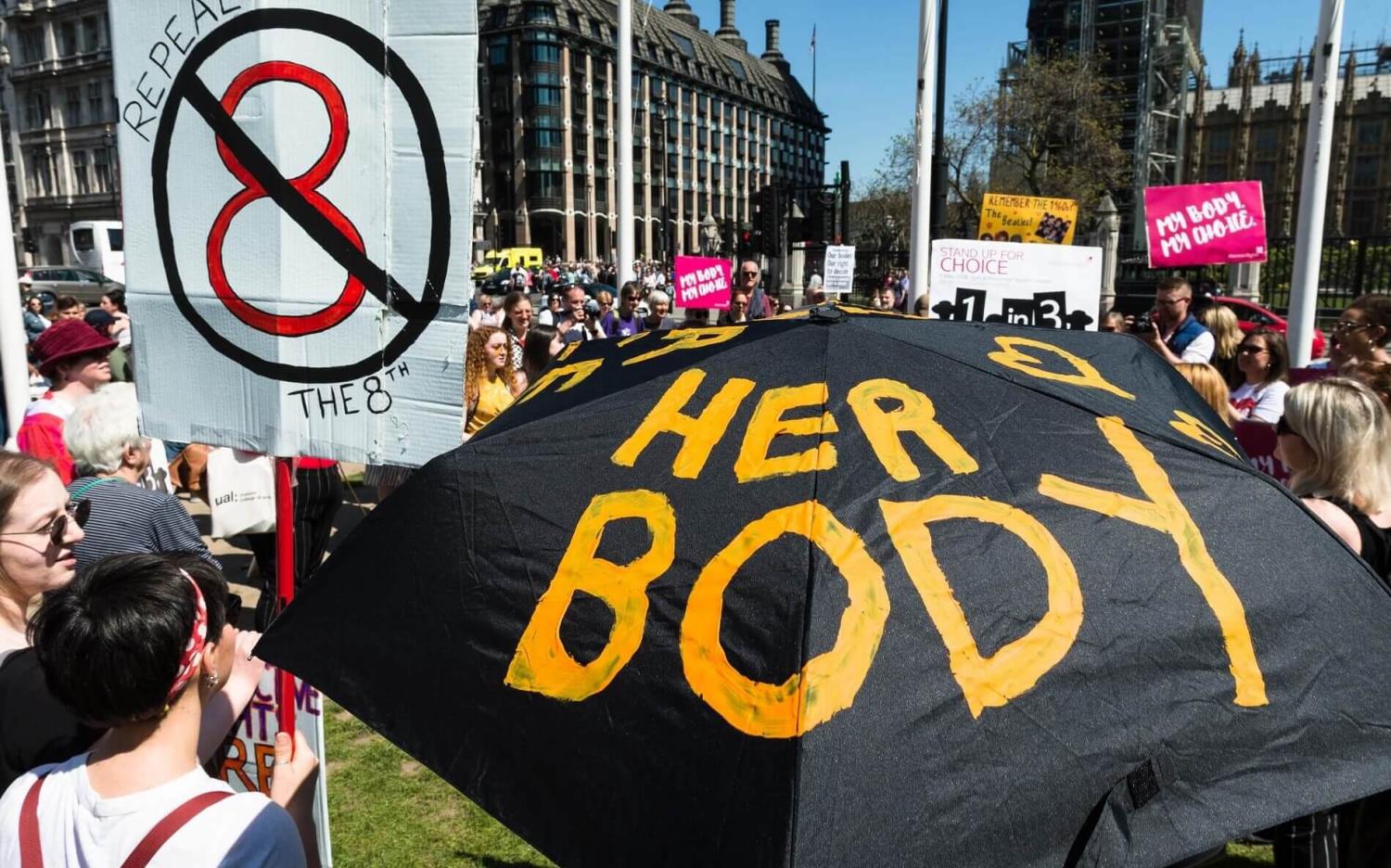Ireland is about to vote in a referendum on whether to repeal what is commonly known as the Eighth Amendment of the Irish Constitution, and legislate to permit abortion. Much like the 2015 Irish referendum that legalised same-sex marriage, this vote will address changing social attitudes that have previously been heavily influenced by conservative and religious authorities.
Irish abortion laws are some of the most restrictive in Europe. Cases involving fatal fetal abnormalities, rape, and threats to the mother’s life have been refused terminations, sometimes with tragic consequences.
But legislation hasn’t stopped abortion entirely: it has merely swept it under the carpet or exported the issue. An estimated 200,000 women have travelled overseas to end their pregnancies, and two to five women a day in Ireland use illegally imported abortion pills with no medical supervision, risking a fourteen-year jail sentence.
Unsurprisingly, this referendum campaign has been even more divisive than the 2015 campaign for same-sex marriage. But what also sets this vote apart from Ireland’s previous constitutional debates is the question around foreign influences in the electoral process. This not only includes the Republic’s electoral relationship with Northern Ireland and voting rights of Irish abroad, but also, more seriously, misinformation from foreign sources.
Ireland is holding fast to the European Union at the same time neighbouring Britain is rejecting membership of the EU, leaving Northern Ireland caught in the middle. Northern Ireland’s citizens – who are entitled Irish citizenship under the Good Friday Agreement – are not permitted to vote in Republic of Ireland referendums, as they are not residents of the Irish state.
A Yes vote in this referendum could have far-reaching consequences. The UK 1967 Abortion Act legalised the termination of pregnancy across Great Britain, except in Northern Ireland. Attempts to legislate change in the Northern Ireland assembly have been struck down. Not only would repealing the Eighth Amendment allow Northern Irish access to services through easier travel to the Republic rather than to the UK mainland, it could also influence northern attitudes toward a united Ireland.
Northern Ireland has traditionally been more socially progressive than the Republic. Yet this dynamic, already changed by the 2015 same-sex marriage vote, could swing further. There’s been increased support for a united Ireland since Brexit, which Northern Ireland rejected (an attitude that has only hardened since). A more socially liberal, pro-EU Republic might be even more appealing to Northern Ireland residents concerned about the impact of Brexit.
Irish citizens in Northern Ireland are not the only ones locked out of the referendum. Ireland’s overseas voting laws some of the world’s most restrictive: overseas voting is not permitted to civilians, and citizens must have lived overseas for less than eighteen months prior to voting.
Given the large Irish diaspora, with an estimated 40,000 of the 750,000 Irish people living abroad thought to be eligible to vote, and relatively small domestic population of 4.76 million, the potential impact is considerable. A campaign to return #HomeToVote could possibly influence the very tight race between Yes and No.
But foreign influence has had another, more concerning impact on the campaign. Ireland need not worry about international campaign funding, as the country is well ahead of nations, including Australia, with its ban on foreign donations to political parties. However, an influx of misinformation, cyberattacks and trolling have flooded social media.
This has ranged from fake social media accounts dispensing dubious information, to unreliable sources made to look like news from Irish public broadcaster RTÉ. Other examples include misinformation on the safety of abortion medication and cyberattacks and trolling of Repeal campaign organisations Together for Yes and In Her Shoes.
To combat these concerns, executives from social media giant Facebook addressed the Oireachtas (Irish parliament) Joint Committee on Communications in April, later rolling out a tool across Ireland as a pilot program to provide advertisement transparency. Facebook then banned all foreign advertisements relating to the abortion referendum on 8 May, and ten days before the vote instigated a full ban on referendum ads to “help ensure a free, fair and transparent vote”. Google followed suit by banning all advertisements related to the referendum.
This move was criticised by the No campaign, and welcomed by the Yes, which is perhaps indicative of the targets of misinformation and attacks. However, doubts remain about how effective these steps have been. A volunteer group monitoring the conduct of the campaign, Transparent Referendum Initiative, reported that 31% of the 200 ads that appeared since 9 May came from page managers outside Ireland. It’s a similar issue to the whack-a-mole problem social media companies encounter when taking down violent extremist content.
Ireland’s Eighth Amendment referendum raises serious questions about striking the right balance between limiting foreign influences and misinformation in elections, and permitting a legitimate diaspora to engage in the national affairs of their country of citizenship; especially if the result can impact immigrants’ decisions on whether to return home.
The impacts of online echo chambers, fake news, and misinformation in the electoral process has been well highlighted in recent years, yet governments and social media companies are still playing catch up to counter these concerns.
If a relatively small countries, such as Ireland, can be the target of concerted, international efforts to influence an election, larger countries, including Australia, would do well to learn from their experience to preserve the integrity of the democratic process.

